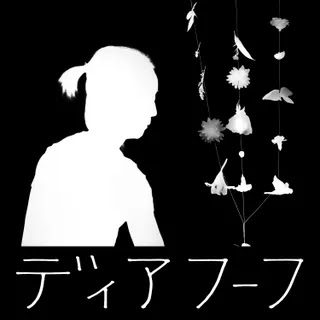The London songwriter’s mesmerizing second album turns towards porous, avant-garde love songs that celebrate kinship, change, and the wonder of quotidian experience.
Manicured, glossy, easily digestible music takes up so much space in pop culture that when an artist like Tirzah finds some success, you have to wonder: How? The London-based singer-songwriter’s 2018 debut, Devotion, was filled with offbeat R&B melodies and soft vocals that offered a quiet escape. It was pop music stripped of all its bells and whistles—introspective, DIY, off-kilter—instantly rising to cult status. On Colourgrade, Tirzah’s follow-up, the formula changes, but the effect doesn’t. Written alongside close collaborators Mica Levi and Coby Sey, Colourgrade trades those pop-adjacent structures for darker, more guttural elements and alien embellishments, creating a stunning collection of porous, avant-garde love songs and Tirzah’s most enigmatic project yet.
Lying directly beneath Colourgrade’s glassy production and wavering vocals is a document about creating life and honoring kinship. Colourgrade was written while Tirzah was touring behind Devotion, and recorded and produced in 2019, the year after the birth of her first child. “Going through pregnancy and birth and motherhood, the anatomy found its way into all of the songs,” she told Stereogum. Centerpiece “Beating” reads like a handwritten love poem to her partner (and sometime producer) Kwake Bass, with a layer of noise that adds intimacy to the recording. When she exclaims, “We made life/It’s beating,” it’s one of the album’s most personal lines. “Sleeping” opens with a startling guitar noise that evokes a baby’s cry, then transitions into Tirzah’s soft lullaby: “So close/I hold you/Hold you tight.” Even as she’s actively working through these monumental changes, she’s unafraid to invite us into the process.
Part of this process means making space for corporeality. On the sensual “Tectonic,” Tirzah whispers, “Pursued as the rhythm magnetized our hips/Techno to tectonic plates,” binding the power of the Earth with the energy of human bodies. The accompanying video follows suit as the camera abstractly traces two people lying naked beside each other. Similarly, the video for “Sink In” zooms in on the sudden movements between two men, who passionately dance in a puddle of water. Colourgrade marvels at the body, a more artful kind of navel-gazing, evoking images that are regenerative and mesmerizing.
Though Tirzah continues to work closely with Mica and Sey (who sang on Devotion’s title track), her approach to song-making has changed drastically. Devotion was compiled from 10 years’ worth of material, with the intention of allowing each song to stand alone. Here, she aimed to leave things unpolished: “The roughness, the accurate recording, the time it takes to get places, it’s a bit of a statement on how things feel live,” she’s said. In this way, Colourgrade has a certain organismal quality: the mid-sentence throat clearing on “Beating,” or the sirening synths that illuminate Tirzah and Sey on “Hive Mind.” Bookended by a pair of tracks emulating conception and death, the album’s sequencing is reminiscent of life itself. The titular opener is Tirzah at her most unfamiliar: abstract lyricism, Auto-Tuned vocals, and uncanny, bird-like synth whistles signal a new beginning. On the other hand, saccharine closer “Hips” zaps all over the place, like a sudden rush to settle all your accounts: “Cold grips my mind/Cold hits my chest.”
But Tirzah leaves the middle tracks tantalizingly open-ended, as rootless as driftwood. She meditates on the existential, everyday life of a parent, bringing us into her new and ever-changing world. On “Recipe,” granular synths drenched in reverb seep through her voice, as if to wash away her anxieties. Or take “Crepuscular Rays,” a long, meandering song in the album’s second half that, according to Tirzah, is foundational to its structure. Moving through droning vocal manipulations and skeletal instrumentation, it unites the unearthly production with the fleshiness of the vocals. In nature, crepuscular rays are the angled beams of sunlight that appear near dusk or dawn. It’s no coincidence that Tirzah named one of Colourgrade’s defining tracks after a phenomenon of change.
We tend to measure life by the dots on the timeline, but Colourgrade studies all the distance in between, absorbing each moment and making space for it to settle. The songs move between rumination and enchantment, simulating the multiplicities of being alive. And while it’s a feat to watch these experimental songs come together, Tirzah isn’t trying to be anything beyond her music; the wonder is in the process. While she remains a very private individual, her music is generous even through its haziness. As Colourgrade highlights, love, family, intimacy are central to her everyday. Luckily, she allows us to partake in these familial affairs, and the outcome is spellbinding.
















0 comments:
Post a Comment